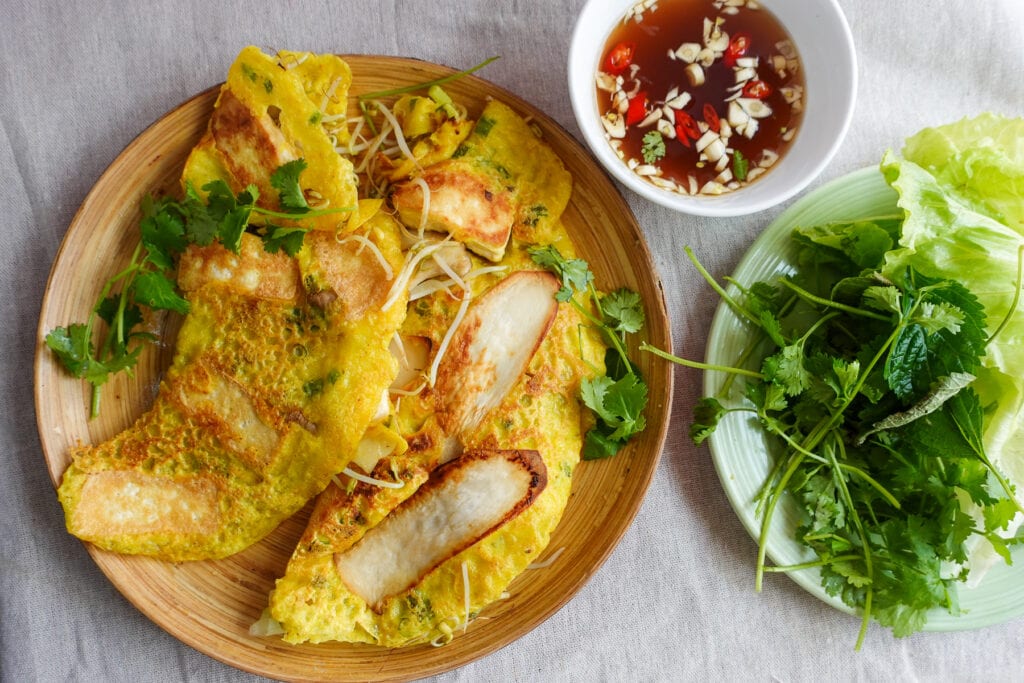As Vietnam becomes a more popular travel destination, there’s a growing awareness of the need to adopt sustainable practices to protect its beautiful landscapes and rich cultural heritage. Eco-friendly travel and dining options are on the rise, making it easier for visitors to enjoy their trip while minimizing their environmental impact. Here’s a guide to eco-friendly travel and dining in Vietnam.
Eco-Friendly Travel Options

- Sustainable Accommodations
- Eco-Resorts and Green Hotels: Many hotels and resorts in Vietnam are embracing eco-friendly practices. Look for accommodations that use renewable energy, recycle waste, conserve water, and support local communities. Examples include the Six Senses Con Dao, which focuses on sustainability, and the Anantara Mui Ne Resort with its eco-conscious initiatives.
- Homestays: Staying with local families in homestays is an eco-friendly option that also provides an authentic experience. Homestays often have lower environmental impacts compared to large hotels and help support local economies.
- Green Transportation
- Cycling and Walking: Cities like Hanoi and Ho Chi Minh City have areas that are ideal for exploring by bike or on foot. Many places offer bike rentals, and walking is a great way to see local sights and reduce your carbon footprint.
- Electric Scooters: Some cities have rental services for electric scooters, which are a cleaner alternative to traditional gasoline-powered scooters.
- Public Transportation: Utilizing public transportation such as buses and trains reduces individual emissions compared to taxis and private cars. In Ho Chi Minh City, for instance, the bus system is quite extensive.
- Eco-Tours and Sustainable Activities
- Responsible Wildlife Tours: Engage in wildlife tours that prioritize the well-being of animals and their natural habitats. Look for operators that follow ethical guidelines and contribute to conservation efforts.
- Community-Based Tourism: Participate in community-based tourism initiatives that promote cultural exchange and benefit local communities. These tours often focus on sustainable practices and provide economic support to local residents.
- Conservation Projects and Volunteering
- Join Conservation Efforts: Many organizations in Vietnam offer opportunities to volunteer in conservation projects, such as protecting sea turtles or reforestation efforts. These experiences allow travelers to contribute directly to environmental protection while exploring Vietnam.
Eco-Friendly Dining Options

- Farm-to-Table Restaurants
- Locally Sourced Ingredients: Seek out restaurants that use locally sourced, organic ingredients. These establishments often support local farmers and reduce the carbon footprint associated with transporting food long distances. Examples include restaurants like “The Green Mango” in Ho Chi Minh City and “Cha Ca La Vong” in Hanoi.
- Vegetarian and Vegan Cuisine
- Plant-Based Options: Embrace vegetarian and vegan dining options, which generally have a lower environmental impact compared to meat-based dishes. Vietnam has a rich tradition of vegetarian cuisine, especially in Buddhist communities. Restaurants like “Rong Vang” in Hanoi and “The Vegan” in Ho Chi Minh City offer delicious plant-based meals.
- Zero-Waste Cafés and Restaurants
- Eco-Conscious Dining in Vietnam: Look for cafés and restaurants that implement zero-waste practices, such as reducing single-use plastics, composting food scraps, and using reusable packaging. “Soul Burger” in Ho Chi Minh City is an example of a place that prioritizes sustainability in its operations.
- Traditional Street Food with Sustainable Practices
- Local Street Food: Many local street food vendors use traditional methods that have minimal environmental impact. Opt for vendors who use sustainable practices, such as biodegradable packaging or reusable containers. Enjoying street food also provides an authentic taste of Vietnamese cuisine.
Tips for Eco-Friendly Travel and Dining in Vietnam
- Carry Reusable Items: Bring reusable items such as a water bottle, shopping bag, and utensils to reduce single-use plastics. Many restaurants and cafés are happy to accommodate reusable containers.
- Minimize Waste: Be mindful of portion sizes and avoid food waste. If you have leftovers, consider taking them with you or sharing them with others.
- Respect Local Cultures: Follow local guidelines and practices for sustainable living. Respect cultural norms and traditions related to environmental conservation.
- Support Local Businesses: Choose local businesses and artisans that prioritize sustainable practices. Your support helps foster environmentally friendly practices within the community.
Conclusion
Exploring Vietnam in an eco-friendly manner allows you to enjoy the country’s stunning landscapes and rich culture while minimizing your environmental impact. From choosing sustainable accommodations and green transportation options to enjoying farm-to-table dining and supporting conservation projects, there are numerous ways to travel responsibly in Vietnam. Embrace these eco-friendly practices to contribute positively to the preservation of Vietnam’s natural beauty and cultural heritage while having a memorable and meaningful travel experience.


